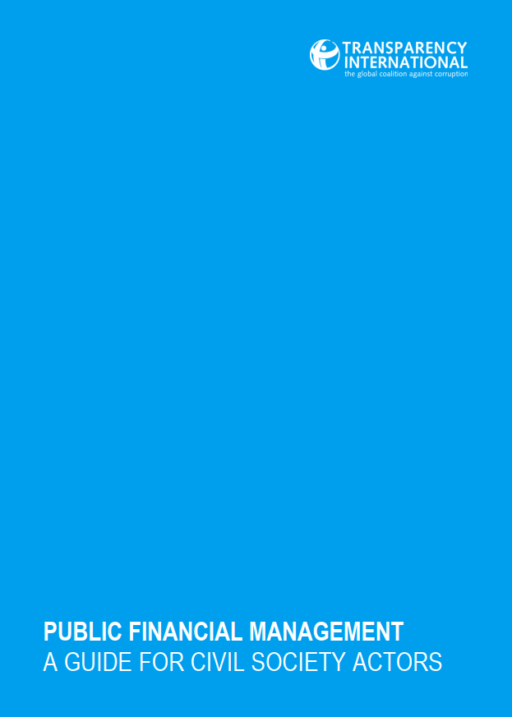Public Financial Management: A Guide for Civil Society Actors
Description
A strong public financial management (PFM) system is key to safeguard public resources, ensure service provision and achieve developmental goals. PFM is integral to any functioning administration and encompasses revenue mobilisation, budget formulation, implementation, internal reporting, as well as external oversight. PFM significantly influences national development by aligning resources, service delivery and governmental policy objectives.
Yet, corruption remains a threat to PFM systems worldwide, resulting in the illicit diversion of public resources into private pockets. Embezzlement, misallocation, bribery, undue influence, conflicts of interest and clientelism may occur at various stages of the PFM cycle, undermining both the effectiveness of public investment and the state’s capacity to provide essential services to its citizens.
This guide is designed as a practical document to help civil society actors gain a better understanding of the PFM cycle and enable them to integrate elements that strengthen transparency, accountability and integrity in PFM into their programmes and projects.
Authors
Jorum Duri, Daniela Patiño Piñeros and Antonio Greco
Reviewer
Matthew Jenkins
Date
05/01/2024
Tags
 Download PDF
Download PDF
